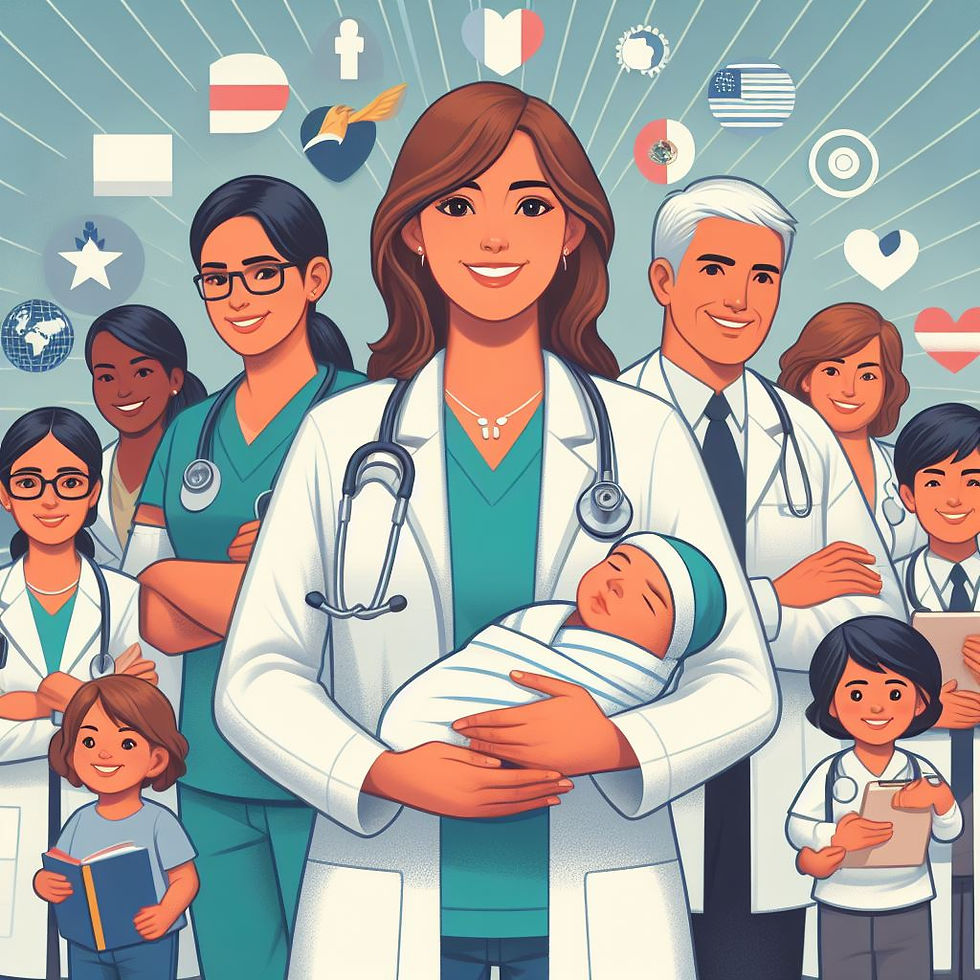I entered medical school as a shy student but was calm, determined, responsible, and reliable. While gaining confidence in my ability to excel in Medicine took time, I overcame a rocky start. I came to be regarded by my peers and teachers as a promising student, demonstrating increasing capacity for and confidence in my clinical abilities in medicine. Originally from Puerto Rico, where Spanish was my first language, Medical School in the Caribbean, all in English, was a challenge at first. While I had advanced in English for years, Spanish was my dominant language until medical school. I was broadsided by my failure to master the language in which I set about to study medicine. By my second year, my less-than-stellar grades improved, although it was a prolonged challenge requiring extra effort, time, and extraordinary dedication.
A primarily kinesthetic learner, the classroom environment did not nurture my learning style. Nevertheless, I stuck it out, forcing myself to make sense of medical theory and synthesize it with the practical application I had been studying. By the time I began clinical rotations, I had developed more clinical sophistication and prowess. The clinical arena is where I thrive. Everything that I was learning came together in such a way as to see the big picture clearly and understand the importance of every decision in the clinical setting. Seeing, touching, and speaking to patients breathed new life into me as a professional. I hit my stride in medical school.

Appreciating the human person behind each clinical picture allowed me to enjoy the humanitarian side of medicine in its clarity, which inspired me to give my all further. My spirit rose to meet the challenge of my rigorous education in Medicine – in English. Despite my rocky start, I finished medical school at a level comparable to most of my class because I came to embrace the humanitarian side of medicine and the great need for primary care providers who are native or near-native speakers of Spanish and English. Family Medicine is essential and is central to the underserved, struggling families in precarious conditions, vulnerable, with very few resources. Helping them gives me a profound sense of purpose, a humanitarian calling, and a vocation. It fills me with energy and leaves me hungry for as much time as possible on the front lines of medicine.
For the past couple of years, I was thinking primarily of the numerous families that often or even generally speak little English, showing up at Emergency Rooms with ill family members across America, vast urban areas, often with extremely sick children whose lives are in danger from easily curable diseases. Many hospitals have emergency rooms inundated by immigrant Spanish-speaking families with sick children. I feel needed and hungry to serve long hours on the front lines doing what I most love, saving lives, especially children. I am proud to live in a country that does not turn sick children away from the doors of ER.
I want to show my appreciation for the USA and our efforts to care for the least fortunate: through a lot of compassion, hard work, attention, high energy, long hours, attending to many patients in the native tongue that we share, getting to know them to the point that is necessary to understand their needs, empathize with them, help them understand that healthcare is a partnership. The core reason I chose Family Medicine as my specialty for decades to come is the idea of serving as an advocate for my patients, treating their physical concerns, and being aware of their psychological, emotional, and social issues. My experience in Medicine, especially Family Medicine, has enabled me to shed the quiet, shy, introverted personality that I brought with me to medical school. I have become a much more confident and resilient clinician, thinking on my feet, and communicating in all directions – often in two languages and simultaneously.

My family was struck by acute tragedy in my first year of medical school amidst the hurdle presented by studying complex material in English. However, that difficult family challenge has now been long resolved, and I feel strongly that the way that my grades improved throughout the time I was in medical school speaks for itself. Given my rough and rocky performance early on in medical school, however, means that being selected for the front lines of your rigorous program serving a large urban area with high numbers of underserved, Spanish-speaking patients – will represent, in the words of Winston, Churchill, ¨snatching victory from the jaws of defeat. ¨
By putting my patients’ needs before my own, I find the complete fulfillment and sense of profound purpose that I have always craved. My life and identity have become subsumed by my function, and I could not be happier in my role. Always focused and of good cheer, I hope to be given a chance to prove what I can do to help stressed children and their parents with multiple issues, in two languages - 60 plus hours per week or more.
To me, this is victory. Thank you for considering my application to practice Family Medicine in your distinguished and challenging residency program.
Residency Family Medicine Hispanic









Comments